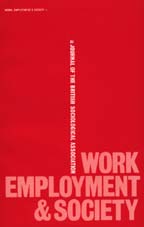Article contents
Working for the Fenland Dollar: An Evaluation of Local Exchange Trading Schemes as an Informal Employment Strategy to Tackle Social Exclusion
Published online by Cambridge University Press: 23 August 2001
Abstract
This article argues that in the current context of rising unemployment and growing exclusion from the traditional locus of social cohesion and income distribution, a new approach to social policy and employment is required. The scope of informal employment strategies to tackle social exclusion needs to be examined. One such initiative, which has been attracting increasing attention from policy-makers, is the Local Exchange Trading Scheme (LETS) local grassroots community currency which operates as a cashless trading network for members. LETS have been growing throughout the UK in recent years. Findings are presented from a case study of a LETS scheme. LETS was found to be successful at delivering new informal employment opportunities to socially excluded groups, boosting their income, and providing a forum for social interaction and community-building. However, there is scope for much greater participation. LETS's small size restricts its usefulness in the labour market for informal employment, and current state policy towards benefit recipients working on LETS is an obstacle. Possibilities for mainstream incorporation into welfare strategies are limited by the informal, non-commercial and deeply personal value regime enacted within LETS. Yet professionalisation would threaten this nascent socially embedded economic geography. State support for LETS, while highly desirable, should not be considered an unproblematic advocacy issue.
- Type
- LOCAL EXCHANGE TRADING SCHEME
- Information
- Copyright
- 2001 BSA Publications Limited
- 40
- Cited by




